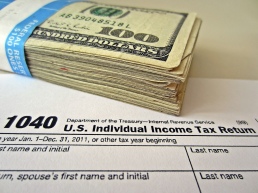Tax refund fraud has become a growing concern for taxpayers, state and local governments, and the federal government. Tax departments are implementing strategies to prevent and detect for the 2015 tax season.
The Ohio Department of Taxation (ODT) is implementing additional safeguards this tax season that will delay state tax refunds. The ODT is anticipating an increase in identity theft directly affecting tax fraud.
 Last year, ODT stopped an unprecedented number of fraudulent income tax returns seeking to steal refunds totaling more than $250 million. In previous years, attempted tax fraud averaged roughly $10 million.
Last year, ODT stopped an unprecedented number of fraudulent income tax returns seeking to steal refunds totaling more than $250 million. In previous years, attempted tax fraud averaged roughly $10 million.
In order for the ODT to detect refund fraud due to identity theft, an additional up-front filter will now be applied to all tax refund requests to examine the demographic information reported on a return. This examination will then assign a “probability of fraud” factor that will determine how the return is then further processed by ODT.
If a return is pulled for review, ODT’s additional security measures will require some taxpayers to successfully complete an Identification Confirmation Quiz before the return will continue to be processed. If a taxpayer’s return is selected for identity confirmation they will receive a letter from ODT directing them to http://www.tax.ohio.gov. This will provide access to the quiz and detailed instructions on how to complete it. Taxpayers without access to the Internet will be directed to call ODT at 1-855-855-7579.
Processing of returns for refunds will be delayed due to these additional screening and security measures. According to the ODT, electronic returns requesting a refund may take up to 15 days to be direct deposited and paper returns could take up to 30 days for a physical check to be mailed out.
Not only is the ODT taking aggressive action on identity theft and tax fraud but so is the Internal Revenue Service (IRS). For 2015, the IRS is introducing new procedures which will address some of the issues. Effective 2015 tax season, the IRS is limiting the number of refunds directly deposited into a single financial account or onto a prepaid debit card. Therefore, any of the subsequent refunds will be issued by paper check and mailed to the taxpayer. Exceptions will not be made.
Visit the Taxpayer’s Guide to Identity Theft for helpful tips to protect yourself from identity theft or fraud.
By: Aubrey Forche, Staff Accountant







